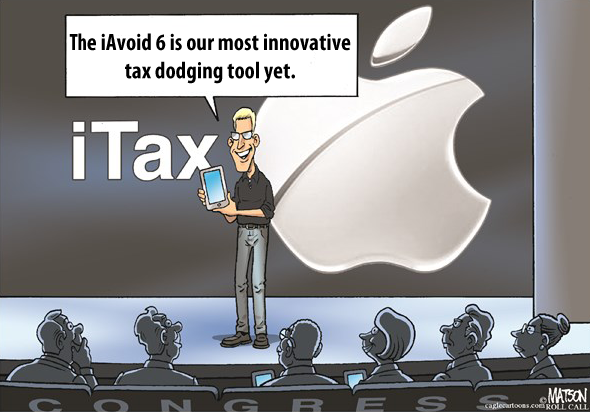
Recent Work by ITEP
President Donald Trump’s tax sketch released in late April is the starting point for federal tax reform discussions. For now, the sketch includes too few details to properly analyze its revenue and distributional impacts, but based on limited information, corporations and the wealthy stand to benefit most. Below are resources ITEP has produced on tax […]
Two states are on the verge of embracing a tried and tested anti-poverty policy, the Earned Income Tax Credit (EITC). In the past two weeks, lawmakers in both Hawaii and Montana passed EITC legislation, which governors in both states are expected to sign. Once officially enacted, these states will join 26 other states and the […]
Nebraska Vote Is Latest Defeat for Tax-Cut “Trigger” Gimmick
May 4, 2017 • By Dylan Grundman O'Neill
Nebraska lawmakers had a long and contentious tax-cut debate this session but ultimately chose the wise path and rejected attempts to give a massive tax cut to the wealthy at the expense of the state’s schools, other public services, low- and middle-income families, and property tax payers. Tax cut efforts in Nebraska last year ended […]
Apple: A Case Study in Why a Tax Holiday for Offshore Cash is Indefensible
May 4, 2017 • By Matthew Gardner

The Apple corporation made waves earlier this week with its disclosure that its worldwide cash now exceeds $250 billion. Less noticed was a separate disclosure on Wednesday that the company’s offshore cash now exceeds $239 billion, meaning that more than 93 percent of the company’s cash is now held—at least on paper—abroad. This represents an […]
State Rundown 5/3: Lawmakers See Value in State EITCs, Danger in Tax Cut Triggers
May 3, 2017 • By ITEP Staff
This week, Kansas lawmakers found that they’ll have to roll back Gov. Brownback’s tax cuts and then some to adequately fund state needs. Nebraska legislators took notice of their southern neighbors’ predicament and rejected a major tax cut. Both Hawaii and Montana‘s legislatures sent new state EITCs to their governors, and West Virginia began an […]
The Foreign Account Tax Compliance Act – or FATCA – is a financial disclosure and transparency law designed to crack down on international tax evasion by U.S. taxpayers who hold financial assets offshore. This law, passed in 2010 as part of the Hiring Incentives to Restore Employment (HIRE) Act, provides the Internal Revenue Service (IRS) […]
Foreign Account Tax Compliance Act (FATCA): A Critical Anti-Tax Evasion Tool
May 2, 2017 • By Richard Phillips
For years, a subset of the well-to-do and well-connected have been able to exploit the intricacies of our global financial system to shelter their income and investments from taxation. The U.S. government took a stand against this type of willful tax evasion with the passage of the Foreign Account Tax Compliance Act – or FATCA – enacted as part of the Hiring Incentives to Restore Employment (HIRE) Act of 2010.
Time to Repeal State Deductions for Federal Income Taxes
May 1, 2017 • By Dylan Grundman O'Neill
Three of the biggest needs facing state policymakers right now are new revenues to fund their priorities in the face of budget shortfalls and federal funding cuts, ways to insulate those revenue streams from unpredictable tax changes at the federal level, and approaches to meet these needs without leaning even more heavily on low- and […]
Why States That Offer the Deduction for Federal Income Taxes Paid Get It Wrong
May 1, 2017 • By Dylan Grundman O'Neill
With many states currently facing budget shortfalls—whether due to weak economic recovery after the Great Recession, struggling commodity prices, or self-inflicted tax cuts—and all states bracing for possible federal budget cuts in areas from education to health care to infrastructure, states are unlikely to be able to continue providing high-quality services to their residents without raising new revenue. In this context, states must find ways to generate additional revenue without increasing taxes on individuals and families who are already struggling to make ends meet and may bear the biggest brunt of federal funding cuts.
If lawmakers truly want to create an environment in which economic mobility is possible for more working people, budget-busting tax cuts are the wrong way to achieve this goal. Dramatic tax giveaways would force cuts to programs that provide early education, health care, job training, affordable housing, nutrition assistance, and other vital services that promote economic mobility. Further, current tax proposals from Congress and the Trump Administration defy what most Americans would consider true reform and, instead, embrace supply-side economic theories. This policy brief outlines two sensible, broad objectives for meaningful federal tax reform and discusses six tax policies that…
